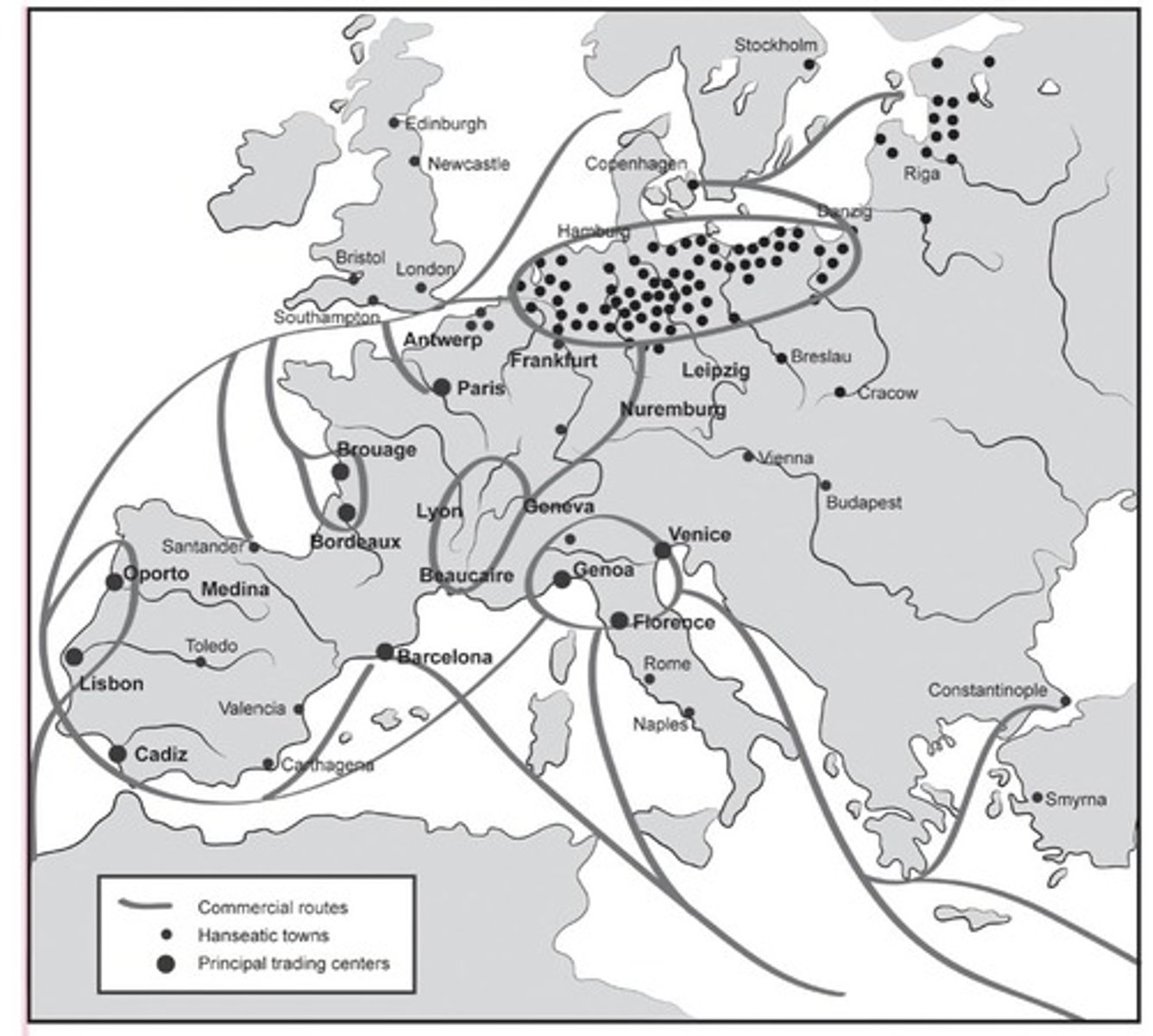APWH Semester 1 Review
1/152
There's no tags or description
Looks like no tags are added yet.
Name | Mastery | Learn | Test | Matching | Spaced |
|---|
No study sessions yet.
153 Terms
Buddhism
Founded by Siddhartha Gautama, emphasizes enlightenment.
Siddhartha Gautama
Buddha, rejected wealth for spiritual enlightenment.
Four Noble Truths
Core tenets of Buddhism addressing suffering and desire.
Theravada Buddhism
Focus on meditation and renunciation of self.
Mahayana Buddhism
Emphasizes rituals and spiritual comfort, broader appeal.
Caste System
Social hierarchy rejected by Buddhism, appealing to lower classes.
Christianity
Religion based on teachings of Jesus of Nazareth.
Jesus of Nazareth
Claimed Messiah, crucified, believed to resurrect.
Bible
Sacred scripture of Christianity, teachings of Jesus.
Confucianism
Philosophy focusing on social and political order.
Confucius
Founder of Confucianism, educator and political advisor.
Spread of Buddhism
Expanded through trade routes into Asia.
Official Religion of Roman Empire
Christianity's status leading to widespread cultural impact.
Hinduism
Belief system centered on Brahma's manifestations.
Brahma
Supreme force in Hinduism, creator of everything.
Dharma
Rules and obligations of one's caste in Hinduism.
Vedas
Sacred texts guiding Hindu beliefs and practices.
Islam
Monotheistic religion founded on Muhammad's teachings.
Qur'an
Islamic holy book containing Allah's revelations.
Five Pillars of Islam
Core practices for Muslims: faith, prayer, charity, fasting, pilgrimage.
Shia
One of two major Islamic sects, differing on leadership.
Sunni
The other major Islamic sect, accepting first caliphs.
Judaism
Monotheistic faith with a unique covenant with God.
Torah
Hebrew Bible containing laws and teachings of Judaism.
Abbasid Dynasty
Islamic empire known for its Golden Age (750-1258 CE).
Baghdad
Capital of Abbasid Dynasty, center for arts and sciences.
House of Wisdom
Library in Baghdad, hub for knowledge and scholarship.
Feudalism
Social hierarchy system in medieval Europe based on land.
King
Top ruler in feudal system with kingdom-wide power.
Nobles
Landowners with power over sections of the kingdom.
Vassals
Lesser lords managing land granted by nobles.
Chivalry
Code of conduct promoting respect among feudal lords.
Mamluks
Egyptian group that defeated Mongols, preserving Islam.
Peasants
Worked the land with few rights.
Serfs
Bound to the manor, lacked freedoms.
Middle Class
Emergence of craftsmen and merchants.
Magna Carta
Document limiting King John's power in England.
Hundred Years' War
Conflict unifying France against England (1337-1453).
Spanish Inquisition
Forced conversion to Christianity in united Spain.
Ivan III
Russian prince who expanded power in 1400s.
Ivan the Terrible
Ruthless czar using secret police in 1500s.
Song Dynasty
Chinese dynasty (960-1279) emphasizing Confucianism.
Foot Binding
Chinese practice to keep women's feet small.
Neo-Confucianism
Blend of Confucianism and Buddhist ideas.
Ming Dynasty
Chinese dynasty (1368-1644) after Mongol rule.
Feudal Japan
Social hierarchy established in 1192.
Shogun
Chief general in feudal Japan.
Daimyo
Powerful landowner in Japan.
Code of Bushido
Samurai code emphasizing loyalty and honor.
Lesser Samurai
Vassals serving the daimyo in Japan.
Peasants
Lower social class with limited rights and status.
Artisans
Skilled workers creating goods and crafts.
Delhi Sultanate
Islamic kingdom established in Northern India.
Islamic Monotheism
Belief in one God, contrasting Hindu polytheism.
Rajput Kingdoms
Hindu principalities resisting Muslim invasions from 1191.
Khmer Empire
Hindu empire in Southeast Asia, 9th-15th century.
Angkor Wat
Famous temple built by Khmer Empire.
Hausa Kingdoms
Series of kingdoms along the Niger River.
Golden Horde
Mongol group that conquered modern-day Russia.
Mansa Musa
Malian ruler who expanded the kingdom and built Timbuktu.
Song Dynasty
Chinese dynasty known for merit-based bureaucracy.
Daimyo
Powerful samurai owning large land parcels.
Bushido
Code of conduct for samurai emphasizing loyalty.
Rajput Kingdoms
Hindu principalities resisting Muslim forces in India.
Angor Wat
Temple built during Khmer Empire in Cambodia.
Mansa Musa
Malian ruler known for wealth and pilgrimage.
Inca Empire
Civilization in Peru known for extensive bureaucracy.
Cuzco
Capital of the Inca Empire, 300,000 population.
Scholasticism
Growth of education and universities in the Middle Ages.
Crusades
Military campaigns by Christians against non-Christians.
Urbanization
Growth of cities around trade routes.
Genghis Khan
Unified Mongol tribes and expanded their territory.
Mongol Empire
Spanned from Pacific Ocean to Eastern Europe.
Kublai Khan
Genghis Khan's successor who ruled China.
Mali
West African kingdom rich in gold.
Cultural Diffusion
Spread of cultural beliefs and practices through trade.
Silk Road
Major trade route connecting East and West.

Islamic Empire
Expanded into North Africa, enhancing trade and culture.
Aztecs
Civilization known for trade and human sacrifice.
Tenochtitlan
Capital city of Aztec Empire, modern Mexico City.
Machu Picchu
Inca architectural site in the Andes Mountains.
Pope Innocent III
Pope known for strict church decrees and heresy persecution.
Sonni Ali
Songhai ruler who expanded territory in 15th century.
Trade Networks
Global routes facilitating commerce and cultural exchange.
Cultural diffusion
Spread of ideas, religions, and languages through trade.
Bubonic Plague
14th-century disease from Asia, killed 1/3 of population.
Indian Ocean Trade
Trade network dominated by Persians and Arabs.
Great Zimbabwe
African trading empire from 11th to 15th centuries.
Cultural intermixing
Sailors marrying local women, creating diverse communities.
Silk
Luxury fabric traded along the Silk Road.
Porcelain
Fine ceramic material exported from China.
Expansion of Religion
Spread of faith through trade and missionary efforts.
Natural spread of religion
Religion spread through cultural contact and trade.
Marco Polo
Venetian merchant known for travels to China.
Ibn Battuta
Islamic traveler who explored the Islamic world.
Margery Kempe
English Christian known for her pilgrimages.
Johannes Gutenberg
Inventor of the printing press in mid-1400s.
Protestant Reformation
Movement challenging Catholic Church's authority.
Indulgences
Payments to reduce purgatory time in Catholicism.
Martin Luther
German monk who criticized Catholic Church practices.